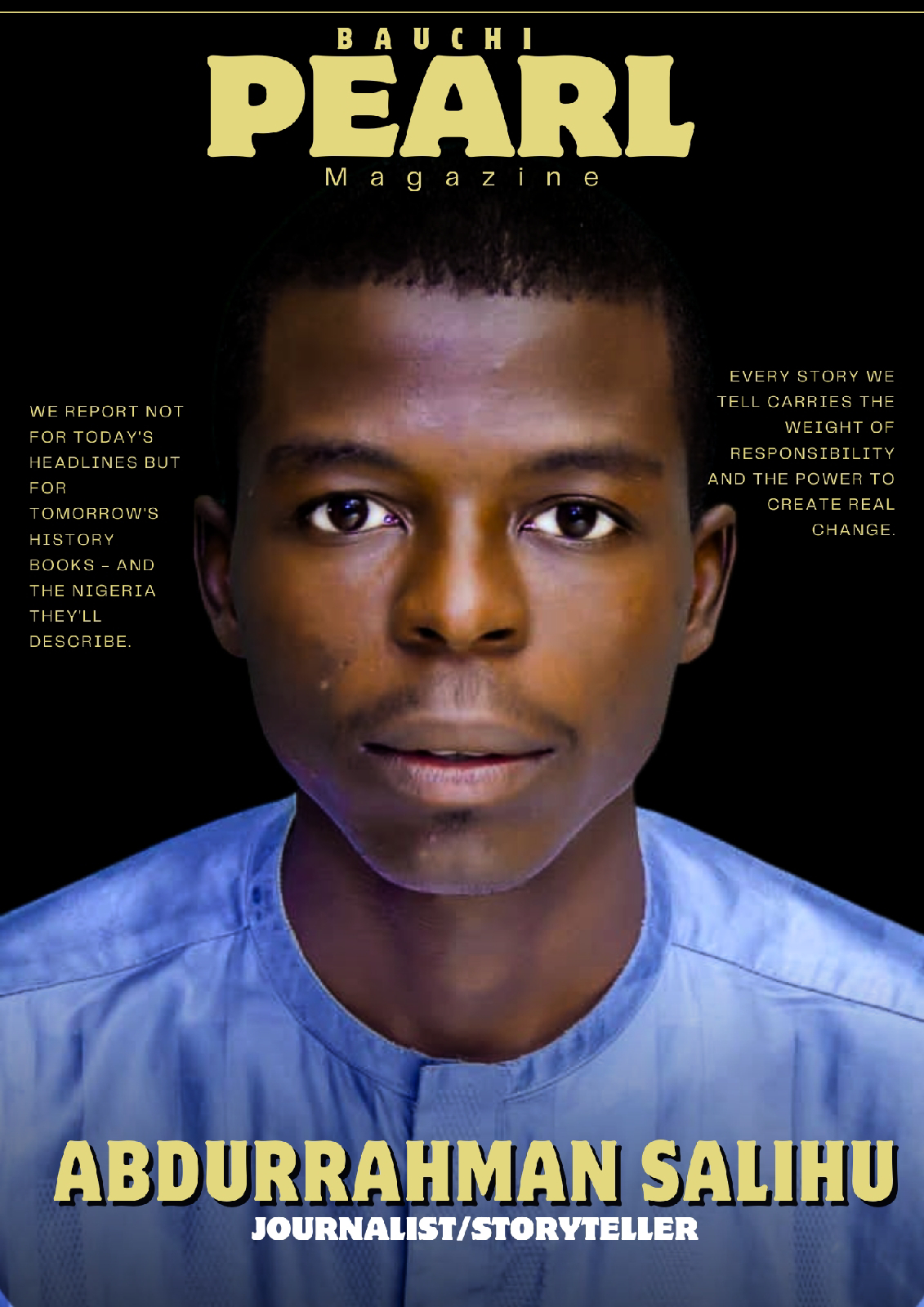Abdurrahman Salihu's journey into journalism began in the classrooms and streets of Bauchi, where his insatiable curiosity and love for storytelling first took root. Born and raised in the northern Nigerian state, he attended Malam Muhammad Jahun Primary School, Dutsen Tanshi Junior Secondary School, and Games Village Senior Secondary School - each step nurturing his growing fascination with media and communication. Even as a young student, Salihu stood out. He was the boy who would rather interview strangers than sit through a lecture, the one who earned the nickname "Ray Power" for his relentless energy in reporting school events. His passion sometimes got him into trouble - like the time his principal slapped him for skipping class to conduct interviews. But for Salihu, the thrill of uncovering stories was worth the reprimand.
After completing his National Diploma at Abubakar Tatari Ali Polytechnic, he pursued a Higher National Diploma in Mass Communication, further sharpening his skills. But formal education was only the beginning. He sought additional training in computer applications, digital storytelling, and multimedia journalism, recognizing early that the future of the profession lay in adaptability. Today, Salihu works as a multimedia journalist at Radio Now Lagos, where he practices what he calls "solution-oriented journalism." Unlike traditional reporting that often focuses on problems, he seeks out stories that highlight change-makers, community resilience, and systemic progress.
"People are tired of endless bad news," he explains. "They want stories that restore faith in Nigeria, that show how ordinary people are making a difference." This philosophy guides his work. Whether covering a village that has lacked clean water for 50 years or investigating the plight of northern beggars in Lagos, Salihu ensures his reporting doesn't just expose issues - it pushes for action. One of his most impactful stories documented a rural community without a hospital, where pregnant women and the sick risked their lives crossing dangerous floodwaters to reach medical care. The report caught the attention of local officials, sparking promises of intervention.
In an era where social media blurs the line between journalism and content creation, Salihu remains a staunch defender of ethical reporting. At Radio Now Lagos, he and his team refuse financial incentives from government officials, ensuring their editorial independence stays uncompromised. "Just because anyone can post online doesn't make them a journalist," he says. "Our responsibility is to verify, to question, and to present the truth - not just chase clicks." He acknowledges the challenges: the rise of citizen journalism, government intimidation, and the spread of AI-generated disinformation. Yet, he remains optimistic. "People will always return to credible sources. That's why real journalism will never die."
Salihu's current projects reflect his commitment to giving a voice to the voiceless. One investigates the influx of northern beggars in Lagos, many of whom sleep on the streets with their children. Another follows a decades-long water crisis in a Bauchi village, where women trek miles daily to fetch contaminated water. "These aren't just statistics - they're human beings," he emphasizes. "If my reporting can push just one leader to act, then I've done my job."
To young journalists entering the field, Salihu offers blunt wisdom: "This isn't a career for fame or quick money. It's hard work, but if you're driven by truth, it's the most rewarding work there is." His toolkit for navigating modern journalism? Fact-checking, relentless curiosity, and the courage to ask tough questions. "In a world full of noise, be the signal."
Abdurrahman Salihu doesn't just report news - he chases stories that matter. Whether through radio, digital content, or investigative documentaries, his mission stays the same: to inform, inspire, and ignite change. In his hands, journalism isn't just a profession; it's a calling. And for those listening, reading, or watching his work, the message is clear: The truth still matters.

Keep the good working bro🙏
ReplyDelete